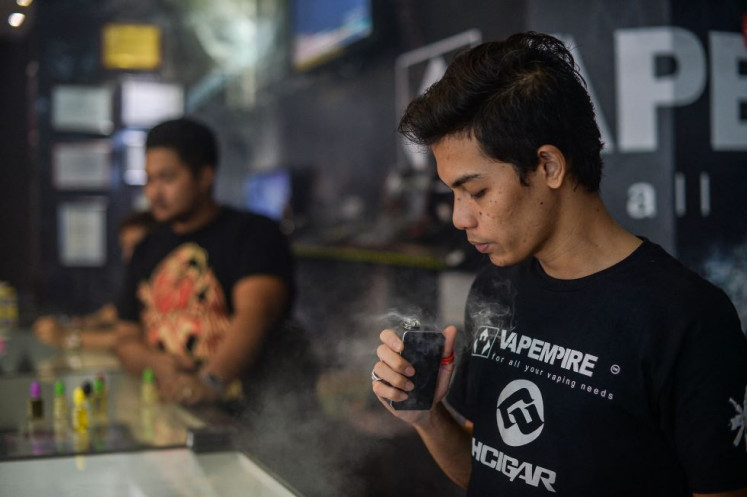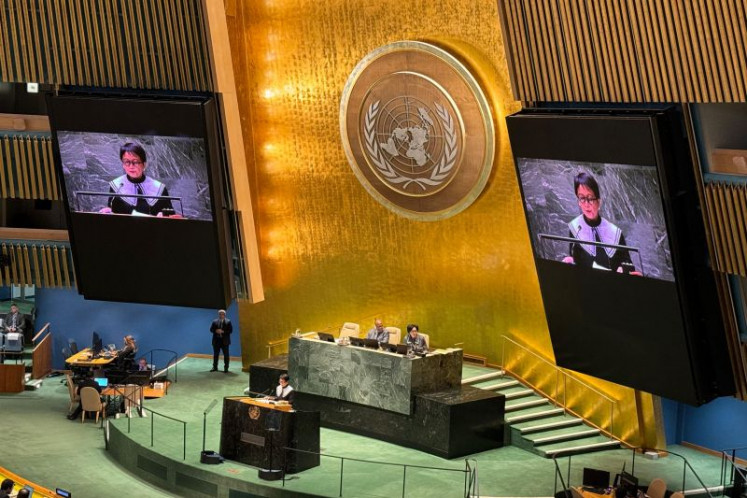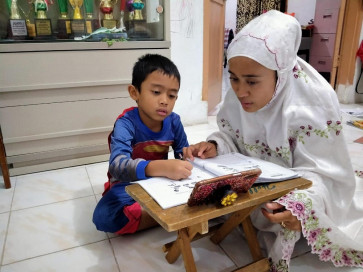Time to take care of the unpaid work care
Research has shown that the gender gap in unpaid care work has adverse effects on economic growth and development because of its link to low female labor force participation (FLFP), the gender pay gap and domination of women workers in the informal sector.
Change Size
 Phone-schooling: A mother helps her son with online-learning at their home in Medan, North Sumatra, on March 25, 2020. (JP/Apriadi Gunawan)
Phone-schooling: A mother helps her son with online-learning at their home in Medan, North Sumatra, on March 25, 2020. (JP/Apriadi Gunawan)
I
n Indonesia, like in many parts of the world, unpaid care work (UWC), such as cooking, cleaning and caring for family members, is unequally distributed, with women bearing the brunt.
A national survey in 2018 revealed that on average, housewives worked for 13.5 hours at home, double the average working hours of women in the Asia Pacific. Women's disproportionate responsibilities have even heightened during the COVID-19 pandemic as they have had to balance their duties with paid work and children's online schooling.
The uneven sharing of unpaid labor between gender strikes at the core of gender inequality, eroding the economy and the nation's prosperity. Research has shown that the gender gap in unpaid care work has adverse effects on economic growth and development because of its link to low female labor force participation (FLFP), the gender pay gap and domination of women workers in the informal sector.
In 2021, the percentage of women's participation in Indonesia's labor force stands at 54.03 percent, significantly below the men's rate of 82.14 percent. But this percentage only considers women who are active in the labor force and does not include the 39.85 million housewives who do domestic work at home.
The World Bank even estimated that women comprised only 39.34 percent of Indonesia's workforce in 2020. Moreover, 64.9 percent, the majority of these working women, were in the informal sector. The average wage for women, at Rp 2.4 million (US$171), is considerably lower than for men, which averages Rp 3.1 million. According to the study by the World Bank, women’s constraints, not their preferences, are responsible for this disparity.
Meanwhile, economically empowered women tend to spend most of their income on their families’ necessities, yielding a multiplier spill-over effect on communities. The broader impacts of women's economic participation are also found in job creation, poverty alleviation and inequality reduction. In short, women promise untapped sources of growth that have been long hidden in the unrecognized care work they do.
Addressing UWC would, accordingly, increase the FLFP and potentially drive sustainable economic growth development. The International Labor Organization predicts that if the gap in Indonesia's participation rates could be closed by 25 percent by 2025, it could bring an additional 4.7 percent in gross domestic product and Rp 406 trillion in tax revenue, adding Rp 2.9 quadrillion to the Indonesian economy.

















